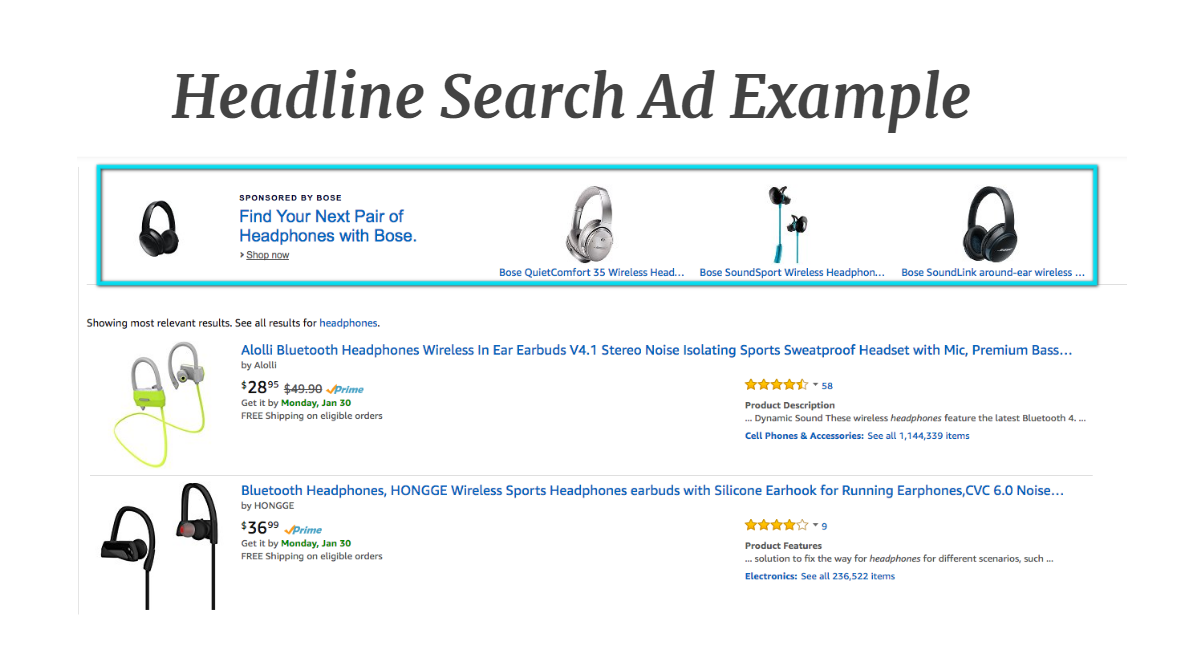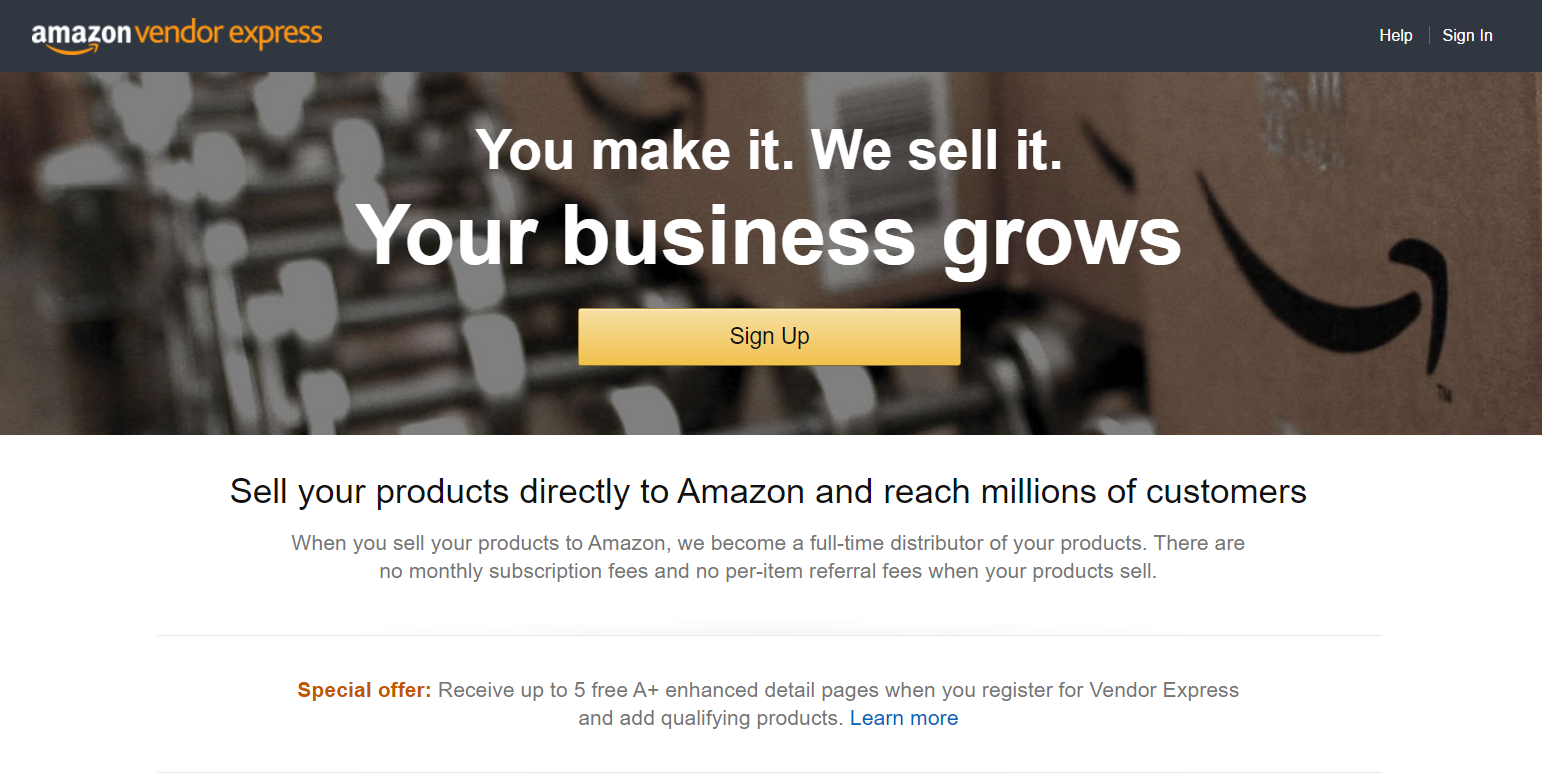There are a few options when it comes to selling platforms on Amazon, Seller Central, Vendor Central and Vendor Express, however, the Vendor program offers a way to grow sales and expand your distribution network with less administrative upkeep compared to Seller Central.
We often get asked by clients whether they should explore the Vendor program to sell their products on Amazon. But we also hear from a lot of brand owners who want to invest the time in learning and mastering this sales channel themselves. The trouble is, while there is a lot of information and training available out there for brands who are selling on the Amazon marketplace, or Seller Central, there is really a desert of information for brands who are currently selling, or are planning to sell wholesale to Amazon on the Vendor platform.
There are two ways of selling wholesale on Amazon. One is Vendor Central, which is an invite-only platform offered to brands with high sales performance (we talked about Vendor Central in this article). The other one is Vendor Express, which allows sellers to transition to a wholesale program without an invitation from Amazon. Today, we are going to talk about Vendor Express.
Vendor Express is a platform similar to Vendor Central in several aspects, but in practice, it acts more like a preface to it. It is different from Seller Central because of the wholesale aspect of selling to Amazon and then Amazon to the end consumer.
With such a competitive market, it’s no wonder, brands are looking into all available opportunities to up their game on Amazon, but sellers attracted by the potential benefits of Vendor Express often jump on this platform without fully researching the pros and cons. Going into Vendor Express without being fully aware of the logistical aspects and lack of control in certain areas could spell failure.
Could Vendor Express Work for Your Brand?
In today’s article, I will explain how Vendor Express works and give you tips to help you find out if this wholesale platform fits your brand's needs.
Vendor Express may be a good option for you if your end goal is to be on Vendor Central. To me, Vendor Express is like the training wheels and Vendor Central is the big boy bike. This program is definitely NOT for you if you’re a control freak with your brand and do not want to forfeit certain things over to Amazon to control. However, we’ve seen good things happening with the Vendor Express platform over the last few months, such as an increase in reporting capabilities, that are making it a bit more robust and appealing to brands on Amazon. Also, many sellers now get on Vendor Express through Amazon Launchpad and Kickstarter.
5 Reasons Why Vendor Express May Be a Good Option for You
1. Selling wholesale to Amazon means they handle the customer service.
This gives you a lot more free time to invest in strategic thinking for your brand and saves you money by investing less in the manpower needed on your end to manage your Amazon channel.
2. You have access to A+ Detail Pages which have shown to increase conversion rate.
A+ Detail Pages allow brands to add more visual elements, helpful copy, and even product demonstration videos to their product pages. According to Amazon’s own data, A+ content pages can help to boost sales by as much as 3 - 10%. This feature is particularly significant because A+ Detail Pages can also help you retain customer interest, educate shoppers about model variations and features, and promote brand awareness.
If you don’t know where to start with your A+ Detail Pages, our team will handle them for you. Learn more.
3. You’re likely to win the Buy Box since the listing is sold and shipped by Amazon.
Having many sellers hawking the same product in the same marketplace has the typical result of driving prices down. This pro-buyer policy is accomplished through the “Buy Box” algorithm, which is the way Amazon’s system chooses which seller gets the sale in cases where multiple sellers are offering the same product. Amazon’s algorithm obviously leans towards Amazon listings when there is competition on a product listing.
You can read more about the Buy Box algorithm in this article.
4. You have access to AMS (Amazon Marketing Services).
AMS stands for Amazon Marketing Services, and it is a service available for accounts who are available on Vendor Central, or Vendor Express. This service offers targeted pay per click advertising solutions to help Amazon vendors reach new customers and drive sales.
AMS is Amazon’s more advanced advertising platform where you can access not only Sponsored Products ads like on Seller Central, but also two additional ad types - Headline Search Ads and Product Display Ads. You can use the Headline Search Ads when your product does not rank well organically and the Product Display Ads to create campaigns which illustrate your product’s benefits over the competition.

Related: If you want to learn more about working with AMS (Amazon Marketing Services), enroll in our free online training dedicated to Vendor brands.
5. You have access to the Amazon Vine program.
Ever since last year’s update of its reviews policy, brands on Amazon had to readjust their strategy to getting new, positive reviews. However, the Amazon Vine program remains a strong option for brands in the Vendor program. Amazon invites customers to become Vine Voices by taking into account their reviewer rank and then sends them the free products that participating vendors have already submitted to the program. Since the Vine Voices are selected based on the quality and helpfulness of their reviews as judged by other Amazon customers, you could say, your products are reviewed by an influencer. Although there are fees associated with this program, it can bring you more reviews, a higher BSR and better sales.
3 Reasons Why Vendor Express Might Not Be Worth it
1. No pricing control
On this platform, unlike the Vendor Central & Seller Central, Amazon sets a wholesale price they will pay you for your product. This wholesale price is based on an algorithm, and there is no way to negotiate this price. Another pricing issue is that Amazon can decide to sell your product at a price of their choosing, which can wreak havoc if you sell on other platforms.
There is a way brands can maintain pricing where they want it to be. We explained how to use a hybrid selling approach on Amazon to attract more margin on each sale while selling on Seller Central, maintaining a preferential relationship with Amazon and being able to access the AMS advertising system as a Vendor.
2. Purchase Orders May Cause Inventory Issues
Another big issue also involves algorithms, and that is with Purchase Orders. Purchase Orders for your products are sent to you once a week on Monday’s based on, yes, you guessed it, an algorithm. If for some reason, the algorithm doesn’t foresee a large demand, a minimal or NO PO at all can come through sometimes causing the issue of being out of stock.
3. Limited Access to Listing Updates
One last issue is the ability to make changes to the listing on your own. There is limited access for you to update things and a ticket must be opened every single time you want to make any update to the pages, unlike in Seller Central where you can go in on the back end and update on your own.
Bottom Line
Vendor Express does come with its good and bad characteristics, and one of our clients here at Bobsled went into it without being fully aware of the logistical aspects and lack of control in certain areas. This caused an issue for them with keeping or getting inventory to Amazon for them to fulfill. Before coming to us for assistance, they had already gone through LaunchPad and were part of the Vendor Express platform. Had we met with them prior to this, we may have suggested, in their case, going another way. They wanted and needed much more control over inventory and pricing, which you lose with Vendor Express.
There is one big factor with Vendor Express (and Central) that is a huge plus over Seller Central.
This is, in fact, a key issue with many people on Seller and it is worth mentioning. Vendor Support is significantly more responsive and proactive than Seller Central support and this can come in handy and save time. Based on our experience, we found Vendor support to respond much faster and with more precise answers to tickets’ opened for our clients. They will usually give you a call to confirm how things should be done. Seller support, on the other hand, can often be frustrating and time-consuming considering that reaching a conclusion with seller support usually takes 2-3 days and sometimes it can take weeks.
If you want to learn a lot more about Vendor Express or Vendor Central, sign up here for our Free Vendor Training Course to gain more insights into the world of Vendors.
Bobsled Marketing is a digital agency that helps brands to increase their sales on Amazon. We work with consumer brands who are selling on the Seller Central, Vendor Central, and Vendor Express platforms and manage over $1 million in monthly sales for our clients. Our clients are familiar with the power of Amazon in reaching new customers and generating huge sales, but don’t have the time to invest themselves in learning how to take full advantage of this sales channel and implementing the ever-changing best practices. If this sounds like you...
.png)


